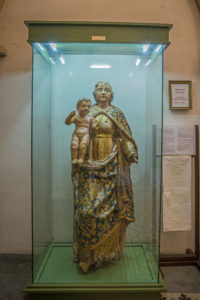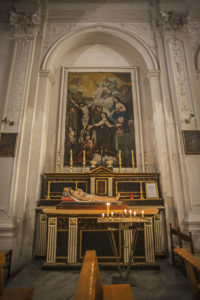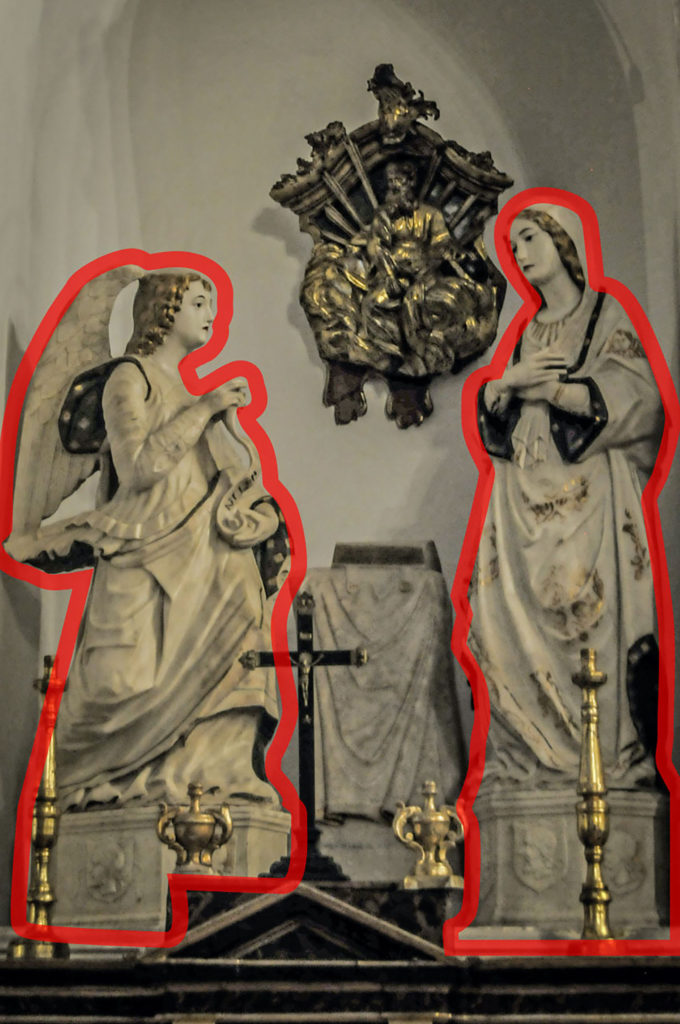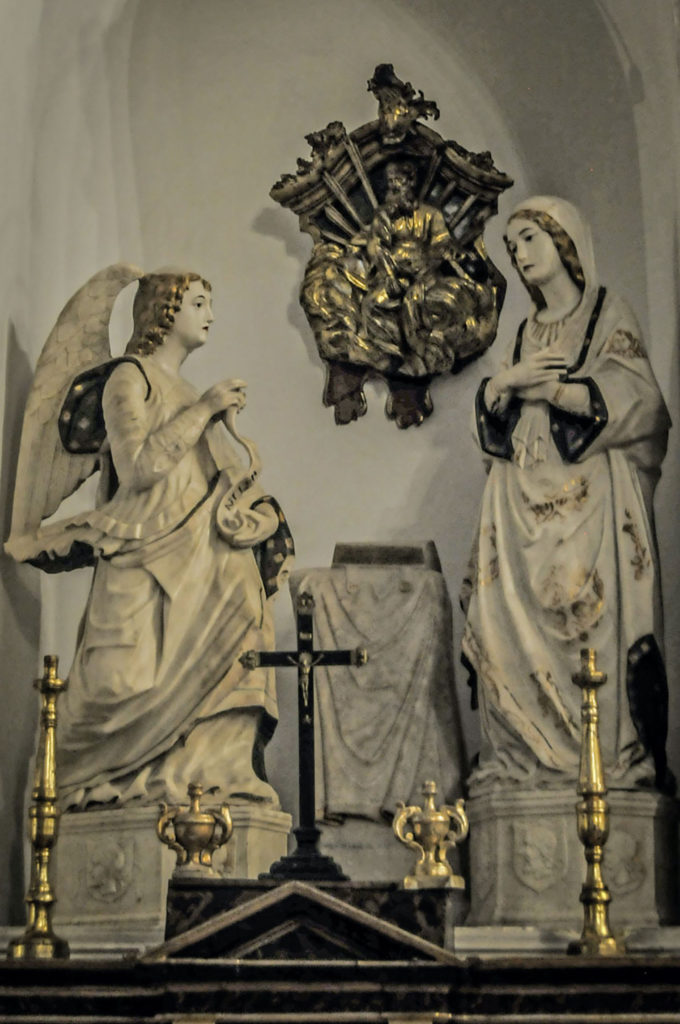Inside the church there are valuable works of art including the Tavola di Sant’Alberto (Panel of St. Albert), the Madonna del Latte and the Annunciation. The former was perhaps part of a polyptych, a painting composition that also included other panels.
The painting depicts St. Albert with a lily and a book in one hand and a crucifix in the other. The work dates back to the early 16th century. According to some scholars the panel was painted between 1513 and 1517 by Leonardo da Vinci’s student, Cesare de Sesto, when he lived in Sicily.
The Madonna del Latte is an interesting sculpture made of papier-mâché, a much more delicate material than classic marble, wood or bronze. The work dates from around the 14th century and is located to the right of the church atrium.


The Annunciation is a sculptural group in white marble, created by the workshop of a Palermo-born artist, Giandomenico Gagini.
The faces of the angel and the Virgin were carved with extreme delicateness and both the blue dress of Mary and the angel’s hair were finely coloured.

